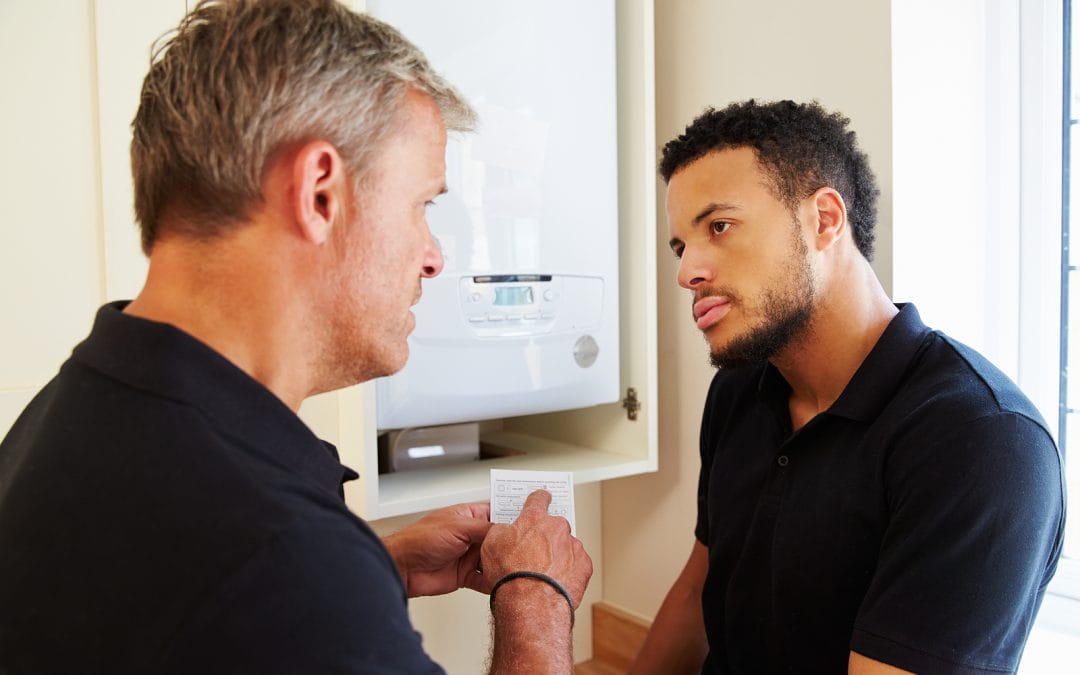Ideally, most annual boiler inspections will be completed before autumn begins in earnest, but if you have yet to get your boiler tested, it is not too late to get in touch with a local Gas Safe engineer to ensure your boiler is there when you need it most.
If you are a landlord or live in rental accommodation, you need to ensure that all gas appliances, including boilers, are checked by a Gas Safe engineer.
As well as this, hotels, hostels, schools, colleges, housing association properties and council buildings will also need to be checked on an annual basis.
However, whilst a boiler service is not legally required every year for most homeowners, it is a false economy to try and skip it, as you risk an expensive call-out charge if something goes wrong and miss out on the opportunity to easily fix a small issue that could save you a lot on your energy bills.
To understand why, here is what a Gas Safe engineer will check during a boiler service, and what you should expect during the 20-60 minutes they spend there.
Initial Visual Inspection
When an engineer arrives, the first step they will take is to do a visual check of the boiler to see if there is anything obviously wrong with any of the parts and components.
This usually involves checking the hot water cylinder (if you do not have a combi boiler), the pipework, the control panel, pressure gauges and anything that would illustrate an obvious fault.
They will also check your fuses to ensure that it is safely connected to your electricity supply.
Firing Up And Isolation Tests
Depending on the type of boiler and the time of the year, the engineer will typically check to ensure the boiler works. This usually means firing it up if it is not already on or turning on the hot water tap so a combi boiler automatically activates.
They will not only test that it works, but also that it is working efficiently, making some adjustments if necessary to optimise the performance of the boiler.
Safety Checks
Next, they will perform a series of checks to ensure that the boiler is functioning safely. This includes checking for gas leaks, checking the water pressure and ensuring the gauge on the machine is accurate, checking the thermostat and ensuring that the boiler shuts off quickly if needed for safety reasons.
The engineer will also check safety mechanisms, such as carbon monoxide detectors, to ensure that your home is safe and avoids the risk of potential poisoning.
Opening The Case
Next, the engineer will open up the casing to check all of the internal components, paying particular attention to the burner, pilot light, the spark probe, the heat exchanger and the injection system for any obvious points of failure.
If necessary, they will also clean any parts that appear to be blocked with dirt or debris and replace any components if necessary to avoid long-term issues and ensure the boiler can be as efficient as possible for as long as possible.
Flue Examination
After this, the engineer will check your boiler’s flue for signs of blockages, cracks or improper function.
The flue is one of the most vital parts of your boiler and is essential for avoiding carbon monoxide leaks or an overabundance of pressure.
If there are any problems, the boiler may be shut off whilst a suitable repair is arranged, if it cannot be done on-site.
Sealing And Reassembly
Once all of the internal parts have been checked, the engineer will carefully reassemble the boiler to ensure that the unit and all of its components are properly sealed, testing the boiler to make sure this is the case before turning it back on.
Debriefing, Reporting And Arranging Future Maintenance
Once the servicing is done, the engineer will produce a report on everything they have done that will be sent to you and anyone else who needs to have access to a copy. This document is like a copy of your boiler’s medical history and will help any future engineers if they need to do any further work.
They will also discuss any potential issues, repairs or future maintenance that might be required if there is a problem that needs addressing, and booking a time that suits you.
Otherwise, they will let you know that everything looks as it should and will let you get on with your day, safe in the knowledge that your boiler is working as well as it can and you are aware of any potential faults.

